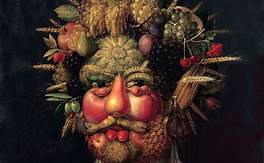Quelle frasi inaspettate, di scrittori o saggisti, che ci spingono a partire
Una frase inattesa, poche parole, e un paese diventa d’incanto quell’oscuro oggetto del desiderio. Così gli scrittori ci trasmettono quell'impulso a partire.

Una frase inattesa, poche parole, e un paese diventa d’incanto quell’oscuro oggetto del desiderio. Così gli scrittori ci trasmettono quell'impulso a partire.

(English translation below)
Una frase inattesa, poche parole, e un paese diventa d’incanto quell’oscuro oggetto del desiderio. Vi sono fotografie che valgono un viaggio, le si vede e viene voglia di partire. Ma esiste anche la galleria delle istantanee scritte, poche parole che da sole sono una formidabile spinta, richiamo irresistibile racchiuso in una micro-letteratura del viaggio. La sua lettura è già il sapore dell’altrove, ma è difficile trovare la potenza adatta nelle battute al volo, che richiede anche una selezione molto suggestiva.
Mi spiego con una minuscola antologia. Su Praterie di Heat-Moon si legge il seguente passaggio da una guida ottocentesca di tali James Redpath & Richard Hinton:
“Se dovete comprare una valigia, compratela non troppo grossa e robustissima. Collaudatela gettandola dal terzo piano: se la ricuperate incolume è adatta al Kansas, altrimenti no”.
Ecco, leggo una frase così e devo partire per il Kansas. Non ho bisogno di altro.
Scrive, a un tratto, Mariusz Wilk in The Journals of a White Sea Wolf:
“Ogni volta che mi trovo qua, al cospetto dell’Oceano Artico, mi chiedo se davanti a una tale vista sia più facile o più difficile morire” .
Cosa intendeva dire davvero? Non resta che andare in riva all’Artico, e capire, e rispondere alla sua domanda.
Angelo Maria Ripellino, nel suo saggio Praga magica: “E pensare Praga come un’Inventio Arcimboldi, come una città antropomorfica, che abbia gli alberi di Petrin per capelli, Hradcany per fronte, i palazzi di mala Strana per occhi, il Ponte Carlo per naso, Piazza della Città Vecchia per bocca”.
Subito partire verso l’unica città arcimboldesca al mondo!

E Paolo Rumiz (nel balcanico Tre uomini in bicicletta) divaga un attimo sui camion pakistani:
“Non sono mezzi di trasporto. Sono solo un pretesto fantastico per dire che la vita stessa è un viaggio. Sono atti di fede. Non hanno frizione, mancano di servosterzo o di freni decenti, ma abbondano di tutto quello che un occidentale definirebbe superfluo. Chincaglierie, affreschi, luminarie, amuleti, tavolozze, fazzoletti, fiori, intarsi, bandiere, rostri, festoni, absidi, pagode, ghirlande di gelsomino”.
È quanto basta per andare a negoziare un passaggio dall’autista di uno di questi viatici per un altro mondo: un viaggiatore serio, oltre a slitte e idrovolanti, non può non averli vissuti dentro.
Giorgio Manganelli, ne L’isola pianeta, lapidario: “Mi sento, con le Far Oer alle spalle, un disertore”. Mai piaciuti i disertori, e subito una gran voglia di andare a dargli il cambio, lassù, dove il visitatore si sente subito felicemente assoldato a un senso di appartenenza che non si può sciogliere.
È un gioco semplice, ognuno avrà la sua manciata di frasi indimenticabili – frammenti di conversazioni, letture su libri o riviste, post sui social. Anche se non ci imbattiamo in un invito, sentiamo dentro di noi che bisogna andarci per vedere come sia possibile.
Come accade per i nomi dei paesi, il viaggio può essere la scelta dovuta a una sola frase che sappia evocare e spiegare tutto. Oppure non spiega niente, ma mette una voglia matta di sapere il resto per capire. Basta che sia stata concepita per qualcos’altro, che il suo invito perentorio a viaggiare in quel posto sia il frutto di una felice e involontaria combinazione. Una sorta di slogan pubblicitario per suggestione – dovrebbe interessare chi coraggiosamente reinventa il turismo.
Del resto, questi imperativi indiretti altro non sono che la lezione di alcune campagne pubblicitarie, le migliori. Quando ero bambino era l’epoca del “Chi Vespa mangia le mele”: di per sé non si parlava di un motociclo e delle sue qualità. Ma quell’accostamento da sintesi futurista di immagini fece scuola e funzionava: io stesso, soggiogato da quella sorta di poetare, mi misi in testa che avrei dovuto avere una vespa (alla fine, trent’anni dopo, ce l’ho fatta).
Altro che le frasette che si gingillano con i luoghi comuni della destinazione ideale: il potere della parola felice e dell’immagine che riesce a far scaturire è il primo passo del cammino, è la meccanica della poesia, ed è parte del nostro sistema nervoso.
ENGLISH VERSION
An unexpected sentence, a few words, and a country becomes an object of desire by enchantment. Some photographs are worth a trip, a look at them and immediately wants to leave for finding that picture. Yet, there are written snapshots, just a few words that by themselves stand as a formidable push, an irresistible call which is a sort of micro-literature of travel. Just reading it gets the taste of elsewhere, but it is difficult to find the right power in few words. Let me explain with a tiny anthology.
On Prairies by Heat-Moon, we can read the following quote from a nineteenth-century guide by James Redpath & Richard Hinton:
“If you have to buy a suitcase, buy it not too big and very strong. Test it by throwing it from the third floor: if you recover it unharmed it is suitable for Kansas, otherwise not”.
Here, I read a sentence like this, and I have to leave for Kansas. I don’t need anything else.
Mariusz Wilk suddenly writes in The Journals of a White Sea Wolf: “
Whenever I am here, in front of the Arctic Ocean, I wonder if in front of such a view it is easier or more difficult to die”.
What did he really mean? All that remains is to go to the Arctic, and understand, and answer his question.
Ripellino, in his Magic Prague: “And think of Prague as an Arcimboldi Inventio, as an anthropomorphic city, which has Petrin’s trees for its hair, Hradcany for its forehead, the palaces of Mala Strana for its eyes, the Charles Bridge for its nose, the Old Town Square by mouth”.
Read and them Immediate leave for the only Arcimboldesque city in the world.
And Paolo Rumiz (in the Balkan Three men on bicycles) wanders for a moment on Pakistani trucks:
“They are not means of transport. They are just a great excuse to say that life itself is a journey. They are acts of faith. They have no clutch, they lack decent power steering or brakes, but they abound with everything a Westerner would call superfluous. Trinkets, frescoes, lights, amulets, palettes, handkerchiefs, flowers, inlays, flags, beaks, festoons, apses, pagodas, jasmine garlands”.
To me, this is enough for willing to negotiate a ride from the driver of one of these routes to another world: a serious traveler, in addition to sleds and seaplanes, cannot fail to have experienced them.
Giorgio Manganelli, in The planet island, in a lapidary way: “I feel, once the Far Oer lye behind me, a deserter”.
Never liked deserters, and I immediately feel a great desire to go and relieve them, up there, where the visitor immediately feels happily engaged in a sense of belonging that cannot be dissolved.
It’s a simple game, everyone will have their own handful of unforgettable phrases – snippets of conversations, readings in books or magazines, posts on social media. We don’t receive an invitation, we just feel within ourselves that we have to go there to see how it is possible.
As with the names of countries, the journey can be the choice dictated by a single sentence that can evoke and explain everything. Perhaps it does not explain anything but creates the crazy desire of knowing the rest in order to understand. It is essential that such a peremptory invitation to traveling is not explicit but the result of a happy and involuntary combination. A sort of advertising slogan by evocation – it should be of interest to those who courageously reinvent tourism (as also treated on Rewriters).
After all, these indirect imperatives are nothing more than the lesson of some advertising campaigns, the best ones. When I was a child it was the era of the “Who Vespa eats apples”: in itself, there was no mention of a motorcycle and its qualities. But that combination of futurist synthesis of images set the standard and worked: subdued by that sort of poetry, I got it into my head that I should have a Vespa (eventually, thirty years later, I succeeded).
Quite different than the phrases that play with the clichés of the ideal destination, the power of those magic words is the first step of the journey. It is the mechanics of poetry, and it is part of our system nervous.
